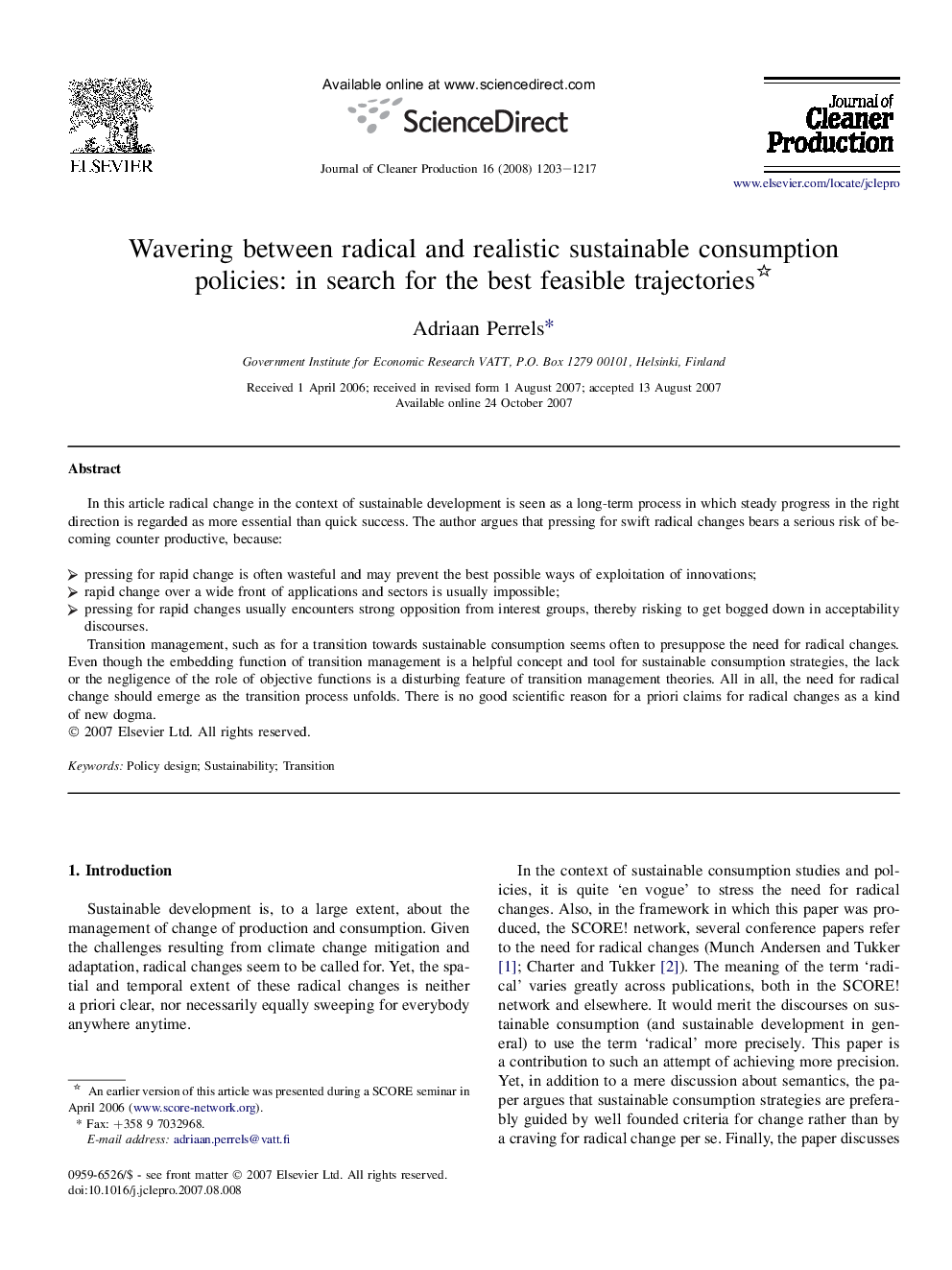| Article ID | Journal | Published Year | Pages | File Type |
|---|---|---|---|---|
| 1746753 | Journal of Cleaner Production | 2008 | 15 Pages |
In this article radical change in the context of sustainable development is seen as a long-term process in which steady progress in the right direction is regarded as more essential than quick success. The author argues that pressing for swift radical changes bears a serious risk of becoming counter productive, because:pressing for rapid change is often wasteful and may prevent the best possible ways of exploitation of innovations;rapid change over a wide front of applications and sectors is usually impossible;pressing for rapid changes usually encounters strong opposition from interest groups, thereby risking to get bogged down in acceptability discourses.Transition management, such as for a transition towards sustainable consumption seems often to presuppose the need for radical changes. Even though the embedding function of transition management is a helpful concept and tool for sustainable consumption strategies, the lack or the negligence of the role of objective functions is a disturbing feature of transition management theories. All in all, the need for radical change should emerge as the transition process unfolds. There is no good scientific reason for a priori claims for radical changes as a kind of new dogma.
